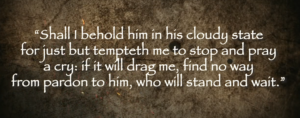
‘Deep-Speare’ Emulates The Bard with AI

A deep learning model trained on 2,700 of William Shakespeare’s sonnets is giving poetry fans fits trying to tell the AI-generated poems from the real deal. But could “Deep-Speare” actually generate Shakespearean magic by itself?
Deep learning approach to AI have proven to be the equal to humans in many endeavors. We have convolutional neural networks that can read medical images better than human doctors, and AI system that play games like chess and Go at a superior level.
Despite the rapid progress in AI, the deep learning approach so far has failed to match humans in one important aspect: creativity. And while AI programs have excelled to some degree in in creating music and paintings that can rival masters, they have fallen well-short in the linguistic category.
That led researchers at IBM Research Australia, the University of Toronto, and University of Melbourne to construct a deep learning model, dubbed “Deep-Speare,” to see if they could re-create poetry that matches Shakespeare’s high level of ingenuity and beauty.
The researchers, who describe their efforts in a recent paper, focused on three aspects of The Bard’s work: language, rhyme, and meter. They used TensorFlow to construct a recurrent neural network architecture that included three separate model, including a language model built on a Long Short Term Memory (LTSM) encoder-decoder model; an encoder-decoder model for capturing iambic pentameter; and an unsupervised model for learning words that rhyme.
Then they took 367,000 of Shakespeare’s poetic words and used them to train the model, which ran on an Nvidia GPU cluster. After adjusting the weights until they were happy, they asked the system to generate four-line poems, which were then judged by human experts.
The results were mixed. While Deep-Speare could generate poems that scored high in rhyme and meter (even higher than human poets, according to the experts), the poems overall lacked readability and emotion.
“Despite excellent form,” the authors conclude, “the output of our model can easily be distinguished from human-written poetry due to its lower emotional impact and readability.”
Related Items:
5 Things AI Is Better At Than You
AI to Surpass Human Perception in 5 to 10 Years, Zuckerberg Says




























